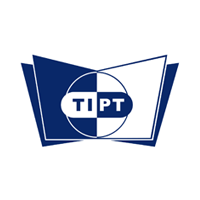
For pharmaceutical companies to get their products to market, they need to pass stringent regulatory requirements. Each country has its own standards for approving new drugs, and for health and safety reasons, it can take years to get a new drug to market from the research and development stage.
When you study Pharmaceutical Regulatory Affairs, one of the most important topics you will learn about will be drug application types. Pharmaceutical companies spend a lot of time and money developing their products, so there is a lot riding on the success of their drug applications. An education in regulatory affairs will give you the knowledge that pharmaceutical companies look for when they hire specialists to help them with these important applications.
Below, we will look at just a few of the drug application types you are most likely to study in your regulatory affairs program.
1. New Drugs Applications: Essential Learning in Regulatory Affairs
When a pharmaceutical company develops a new drug that they want to sell and market to the public and to healthcare professionals, they need to submit an application to get government approval to do so. In Canada, this application is called a New Drug Submission (NDS), whereas in the US, it is called New a Drug Application (NDA).
New drug applications tend to be highly complex. To get approval for a new drug, pharmaceutical companies must provide plenty of data showing the effectiveness and safety of the product. That’s why pharmaceutical companies highly value graduates of regulatory affairs courses who understand the legal and regulatory environment for drug approvals.
2. Regulatory Affairs Training for Generic Drug Applications
A generic drug contains the same active ingredients as a brand-name drug whose patent has expired. Because the brand-name drug has already been through stringent testing requirements, getting approval to market a generic drug is typically a simpler process than that required of a new drug.

In the US, a generic drug application is called an Abbreviated New Drug Application (ANDA), in Canada it is an Abbreviated New Drug Submission (ANDS) and in the European Union it is simply referred to as a Generic and Hybrid Application. Because drug companies need to gain regulatory approval in multiple jurisdictions, you should seek out regulatory affairs training that covers regulations not just in Canada and the US, but around the world. That knowledge will give you an advantage when seeking employment in the industry.
3. Learning About Regulatory Applications for Breakthrough Drugs
Most regulatory agencies provide an expedited drug application process for pharmaceuticals that may offer a breakthrough in the treatment of serious and life-threatening conditions. Typically, an expedited application must meet the same criteria for approval as a new drug would, while also showing why the new drug may have a major public health benefit. If the regulator agrees that the drug has the potential to be a public health breakthrough, then the application gets pushed to the front of the queue so that it can be assessed faster.

In Canada, this expedited application is called Priority Review, in the European Union, it goes by the title Accelerated Assessment, and in the US, there are four different application types for rapid approval: Priority Review, Breakthrough Therapy, Accelerated Approval and Fast Track. Regulatory agencies typically demand that fast-track applications provide a justification for why they should be expedited. Studying Regulatory Affairs at a school that offers guaranteed co-op placement means that you’ll get first-hand experience with applications that actually get approved by regulatory agencies.
Are you ready to pursue a career in the regulatory side of the pharmaceutical industry?
Contact Toronto Institute of Pharmaceutical Technology for information about our Regulatory Affairs Diploma.
